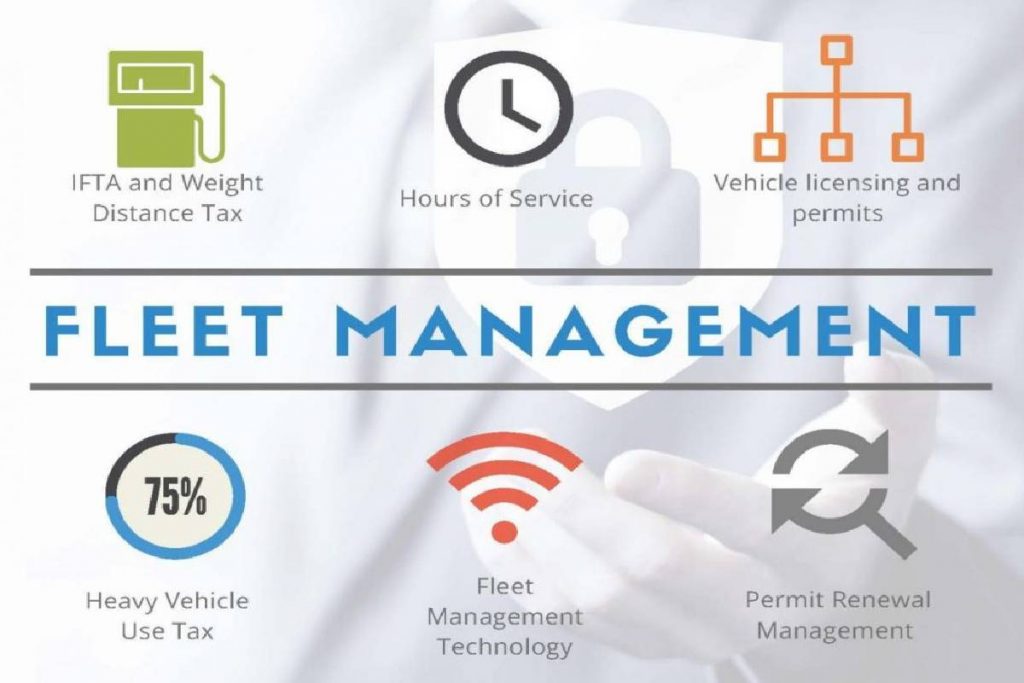Fleet Management Definition
Fleet Management describes the management, planning, control, and monitoring of vehicle fleets.
The distances traveled by vehicles ( trucks, cars, ships, trains, buses ) coordinated, evaluated, and optimized with the help of specific influencing parameters.
It should help to use all resources and services in the best possible way and to identify, correct, or circumvent problems at an early stage.
State of the art is digital Fleet Management Software. Complex software-based systems used to support the work of the user – for example, the dispatcher of a transport company.
The essential goals of systematic fleet management include relieving the disposition, optimizing route planning as well as operational process optimization and cost
What are the Applications of Fleet Management?
There is no fixed definition for the term “ Element fleet management.” the service providers have different concepts.
- The FMS standard, which regulates which data can / may be read from a system by the vehicle CAN bus, is essential.
- An additional acceleration sensor can provide data on extreme braking and acceleration maneuvers and thus indicate an accident if necessary.
- It does not only result in a profile of the distance traveled but also a particular driving situation. And also, the operating state of the vehicle can monitor.
- A simple device configuration only collects the position data of the vehicle via GPS.
- It mainly used in companies with a more massive stock of company cars, freight forwarders, taxi services, car rental companies, rescue organizations, and shipping.
Who is responsible for fleet management?
In the case of small companies, this usually takes over their office management. From a specific fleet size, a dedicated fleet manager required.
In the case of a more massive, there is also the option of handing over the management to an external service provider. For example, large car rental companies or leasing companies.
What are the tasks?
- Fleet management software
- Tour and route planning
- Repair management
- Driver time management
- Data evaluation and data archiving
- Dispatcher and order management
What is Privacy?
- The possibilities of fleet management, together with a data logger, enable full driver monitoring.
- It can lead to impairment under personal law. Unobserved movement is no longer possible for those affected, as they are under pressure to adapt and to behave as expected.
- A balance of interests must, therefore, weighs between the control interests of the operator and the data protection interests of the person concerned.
- The rights of localized persons who are not contractual partners of the service provider must also observed.
Also Read: What is Car Hauling? – Definition, Tips, and More


